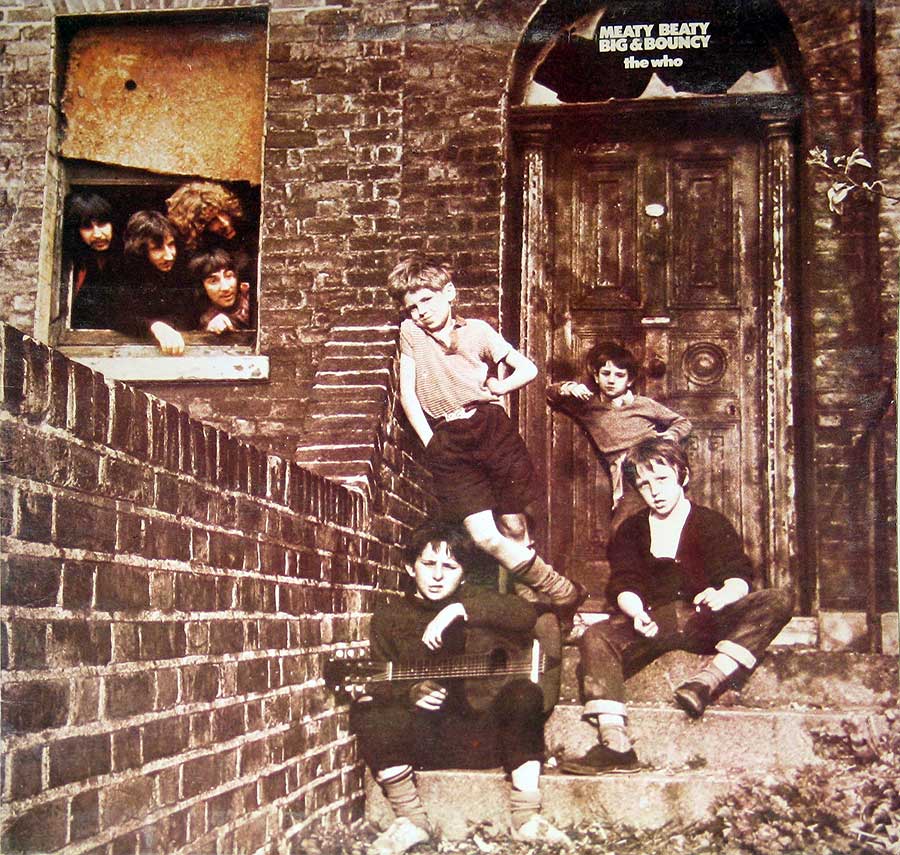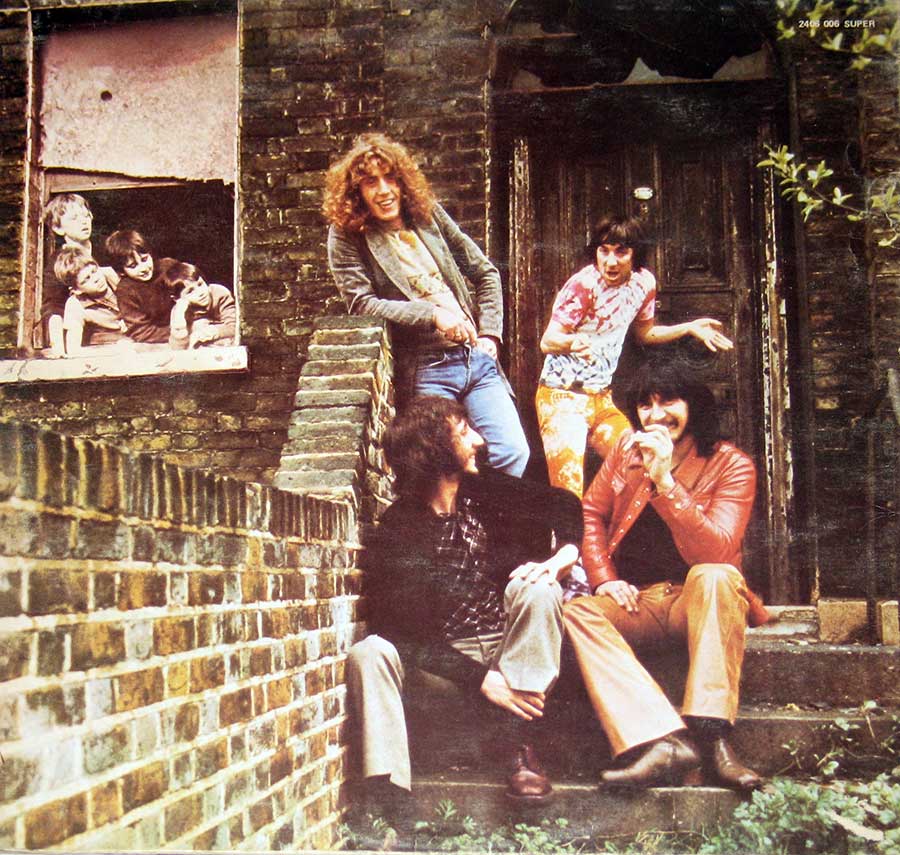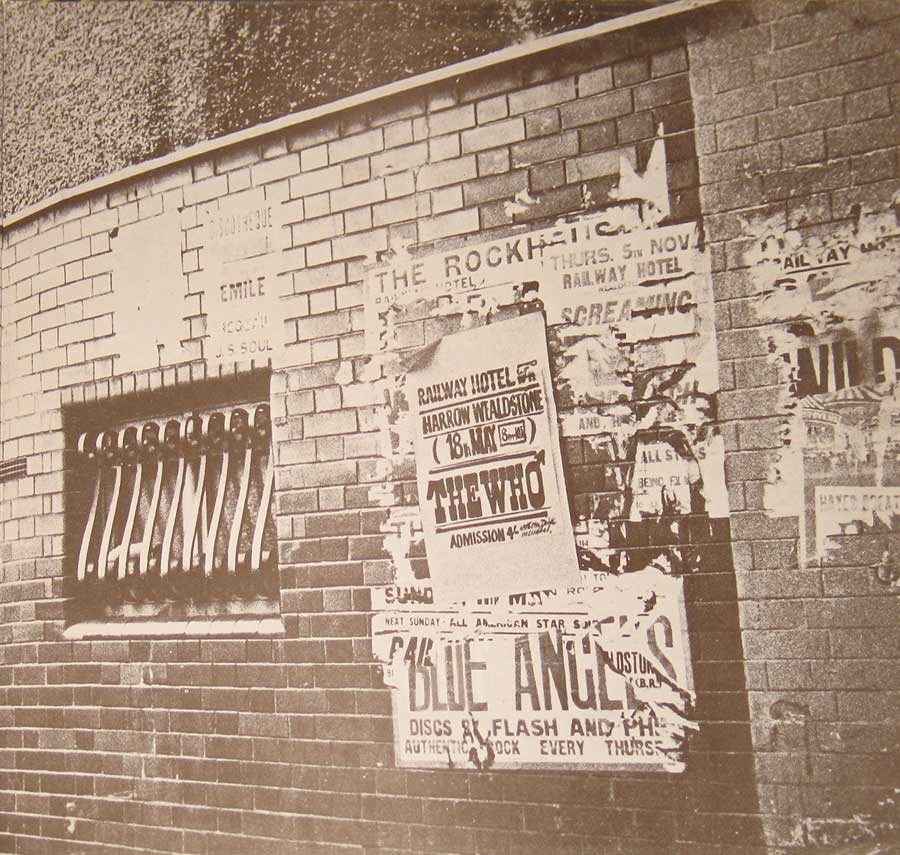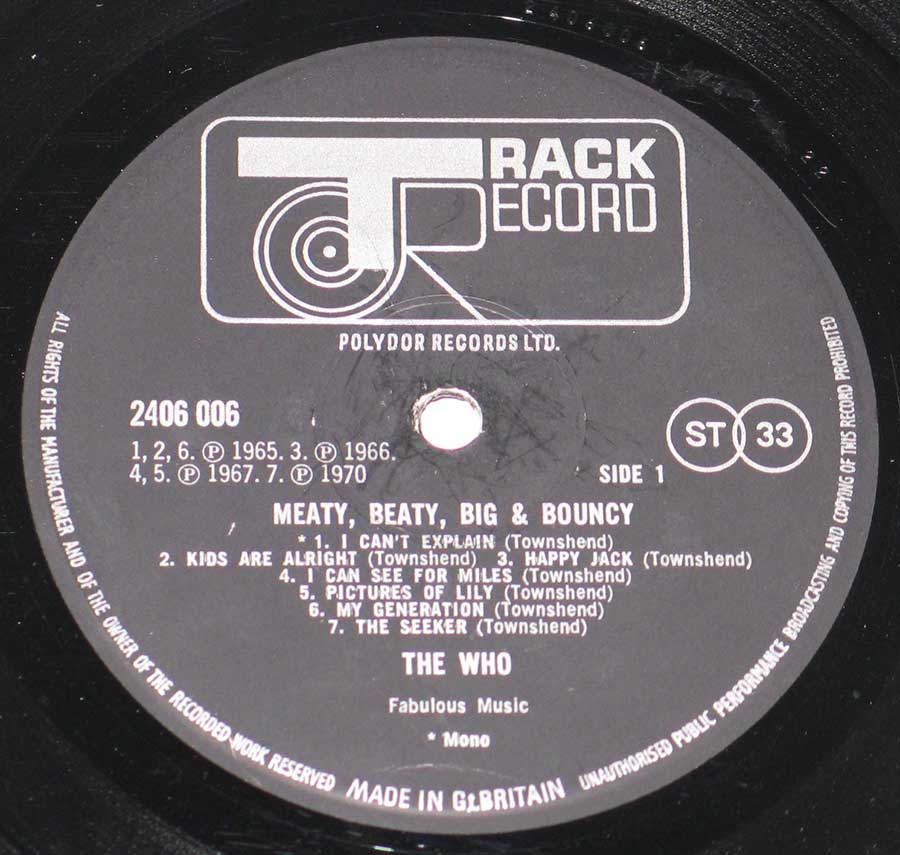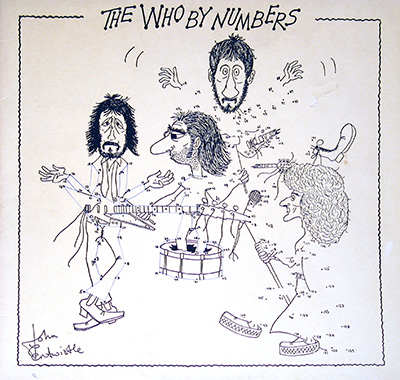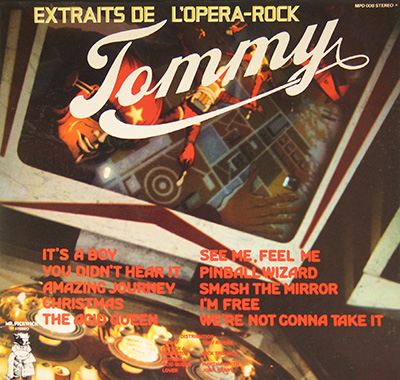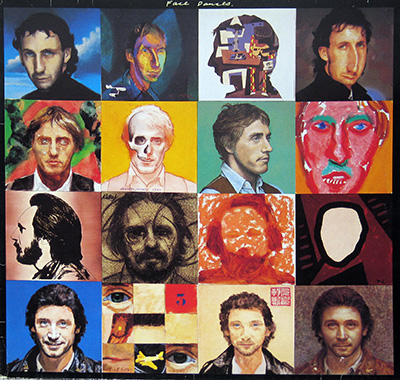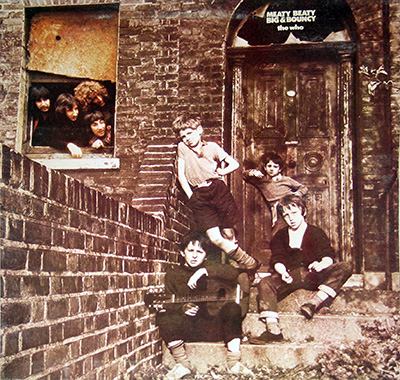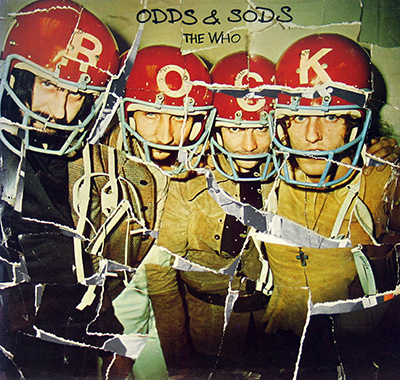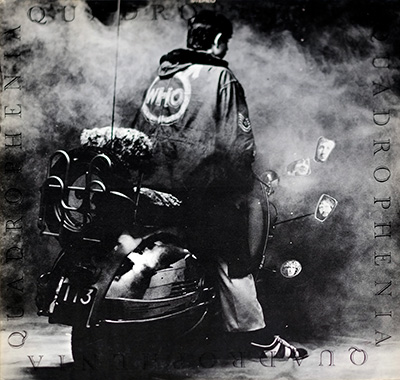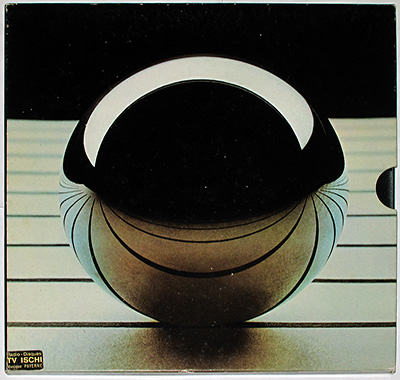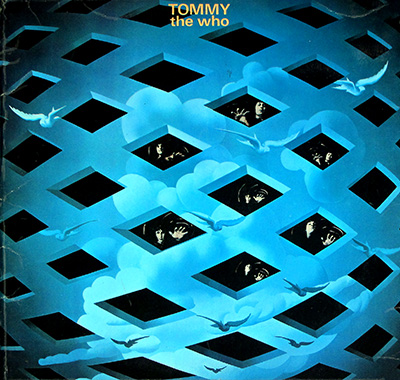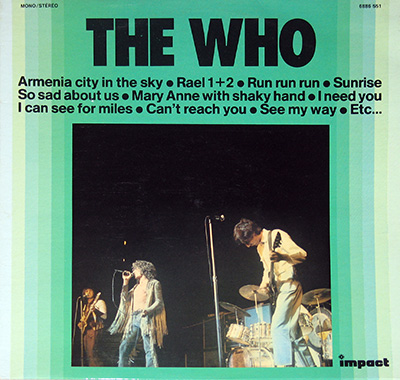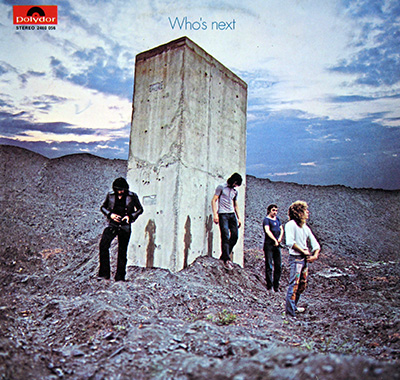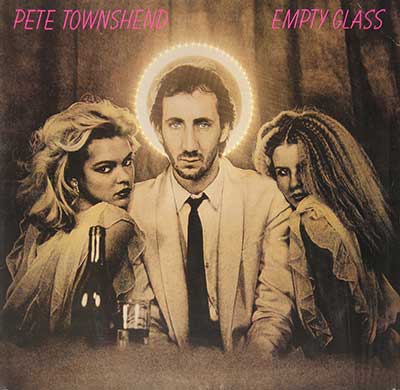Album Description:
The music industry has witnessed countless legendary bands throughout history, but few have left as profound an impact as The Who. With their electrifying performances, powerful lyrics, and innovative sound, The Who defined the essence of rock and roll. Among their many achievements, their compilation album "Meaty Beaty Big & Bouncy" stands out as a monumental collection of their greatest hits. Originally released on 12" vinyl LP, this album encapsulates the essence of The Who's artistry and continues to resonate with fans to this day.
Exploring the Tracks:
"Meaty Beaty Big & Bouncy" offers an impressive selection of The Who's iconic songs. Opening with the energetic and rebellious anthem "I Can't Explain", the album sets the stage for the band's distinctive style. Each subsequent track, such as "The Kids Are Alright", "Substitute", and "Pictures of Lily", showcases The Who's ability to effortlessly blend catchy melodies with thought-provoking lyrics, leaving a lasting impression on listeners.
One of the standout tracks on the album is "My Generation", a song that has become an anthem for youth rebellion and self-expression. Its raw energy, delivered through Pete Townshend's aggressive guitar playing and Roger Daltrey's fierce vocals, perfectly captures the frustrations and aspirations of a generation searching for its identity.
"Pinball Wizard", another classic featured on the album, demonstrates The Who's mastery of storytelling through music. With its memorable chorus and intricate instrumentation, this track became a centerpiece of their groundbreaking rock opera, "Tommy". The song's inclusion on "Meaty Beaty Big & Bouncy" showcases the band's ability to create timeless hits that resonate beyond their original contexts.
Beyond the individual tracks, the sequencing of the album reveals The Who's careful curation and their commitment to presenting their music as a cohesive body of work. The transitions between songs flow seamlessly, creating an immersive experience for the listener. Each track builds upon the previous one, offering a diverse range of emotions and musical styles that showcase the band's versatility.
The Vinyl Experience:
The decision to release "Meaty Beaty Big & Bouncy" on a 12" vinyl LP adds an extra layer of significance to the album. Vinyl records have long been revered for their warm, rich sound quality and their ability to capture the essence of a recording. The large format of the LP allows for detailed album artwork and liner notes, providing a visual and tactile experience that enhances the overall enjoyment of the music.
Moreover, the act of placing the needle on the vinyl and immersing oneself in the album from start to finish adds a sense of intentionality and focus to the listening experience. The crackling of the record and the subtle imperfections only serve to enhance the authenticity of the music. Vinyl records offer a tangible connection to the past, allowing fans to experience the music as it was originally intended.
Enduring Influence:
Nearly five decades after its release, "Meaty Beaty Big & Bouncy" continues to captivate listeners and influence new generations of musicians. The Who's distinct sound and rebellious spirit have made an indelible impact on the rock genre as a whole. The album's timeless themes and memorable melodies have solidified its place in the pantheon of rock music.
